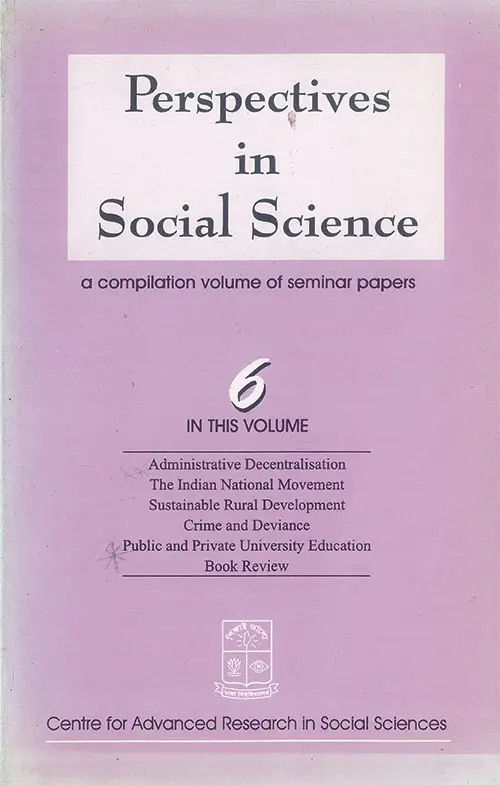
Perspectives in Social Science
Volume 6 August 1999
Perspectives in Social Science
The Indian National Movement: Vision of Subhas Bose and Mahatma Gandhi in Retrospect
Perspectives in Social Science
Volume 6 August 1999
DOI:
ISSN :
Abstract
Both Mahatma Gandhi (1869-1948) and Subhas Chandra Bose (1897-1945) are charismatic personalities, both played distinctive role in the Indian National Movement and earned laurels and reputation for their contribution in India's independence. The former is viewed as a "saint," the father of Indian national awakening, while the latter is seen as a "soldier" of Indian National Awakening, even called 'the father of Indian Revolution.'
Both indeed had a shared destiny; both worked towards raising mass consciousness of the Indian nation against the colonial rule. But their strategic style, thoughts and tactics were so different that it seems inconcievable to bring them together under any conceptual frame. Hence, despite a seeming communality in their dream of a free India, truly speaking, they were not partners-in-struggle, except for a very brief period. Rather as time passed along, they emerged as adversaries, with a differing vision of India: while Subhas Bose sprang more and more as a revolutionary in his strategic formulations as well as in his organizational frame fighting the perceived British enemy, Gandhi had been leaned towards an alignment with the British against a fellow nationalist traveller.
The paper takes a sympathetic view of the role perception of Subhas Bose in India's anti-colonial national struggle; it does so with no spite towards the other nationalist celebrity, Mahatma Gandhi, who had indeed left far more exalted, indelible mark in the history of mankind, though, it is viewed, in the narrower field of Indian national movement there seemed a conspicuous failure on his part to work in harmony and in reciprocity with a fellow traveller for a common cause of a free and united India. That would be a major actor in the international system.
Finally, the paper also draws a comparative parallel in their ultimate destiny. Bose, the revolutionary, gave his life in a fatal
